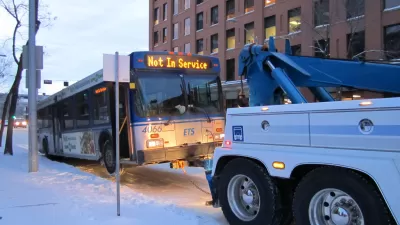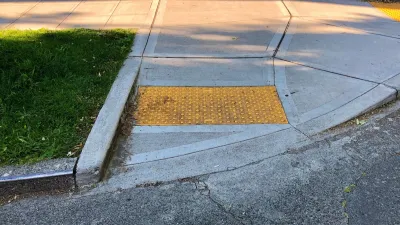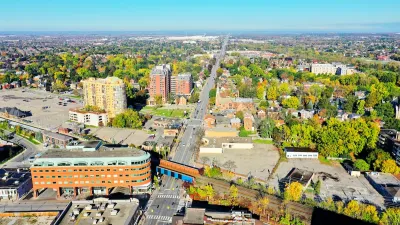Vox brings out the subtleties in explaining the underperformance of the U.S. public transportation system.

Joseph Stromberg writes an article about the state of transportation in the United States that's part explainer and part polemic by asking the question: "The US spends a ton of money on public transportation. So why is it so terrible?"
After citing some statistics to back up the claim that transit systems in Europe and Asia outperform U.S. transit, Stromberg first debunks a common scapegoat for the woes of transit in the United States: "Most of our cities and suburbs were built out after the 1950s, when the car became the dominant mode of transportation. Consequently, we have sprawling, auto-centric metropolises that just can't be easily served by public transportation."
Canada, however, can be cited as an example of country with a similar development pattern that managed to avoid the ravages of poor transit. Finally, Stromberg settles on his answer: "European, Asian, and Canadian cities treat it as a vital public utility. Most American policymakers — and voters — see transit as a social welfare program."
The article goes into a lot more detail about how exactly the politics of mobility achieved its effect in the United States, as well as describing more consequences of, and potential responses to, the state of public transportation.
FULL STORY: The real reason American public transportation is such a disaster

Alabama: Trump Terminates Settlements for Black Communities Harmed By Raw Sewage
Trump deemed the landmark civil rights agreement “illegal DEI and environmental justice policy.”

Study: Maui’s Plan to Convert Vacation Rentals to Long-Term Housing Could Cause Nearly $1 Billion Economic Loss
The plan would reduce visitor accommodation by 25% resulting in 1,900 jobs lost.

Planetizen Federal Action Tracker
A weekly monitor of how Trump’s orders and actions are impacting planners and planning in America.

Wind Energy on the Rise Despite Federal Policy Reversal
The Trump administration is revoking federal support for renewable energy, but demand for new projects continues unabated.

Passengers Flock to Caltrain After Electrification
The new electric trains are running faster and more reliably, leading to strong ridership growth on the Bay Area rail system.

Texas Churches Rally Behind ‘Yes in God’s Back Yard’ Legislation
Religious leaders want the state to reduce zoning regulations to streamline leasing church-owned land to housing developers.
Urban Design for Planners 1: Software Tools
This six-course series explores essential urban design concepts using open source software and equips planners with the tools they need to participate fully in the urban design process.
Planning for Universal Design
Learn the tools for implementing Universal Design in planning regulations.
Caltrans
Smith Gee Studio
Institute for Housing and Urban Development Studies (IHS)
City of Grandview
Harvard GSD Executive Education
Toledo-Lucas County Plan Commissions
Salt Lake City
NYU Wagner Graduate School of Public Service





























